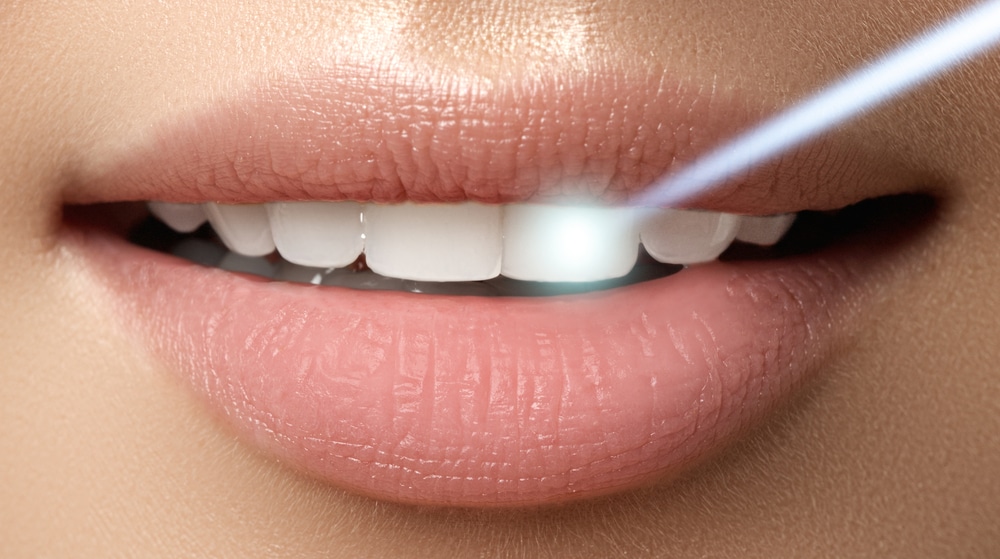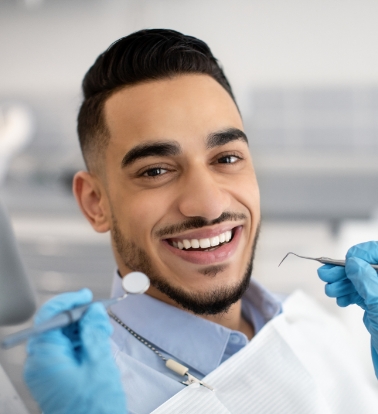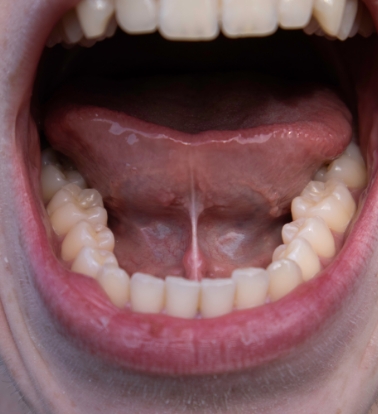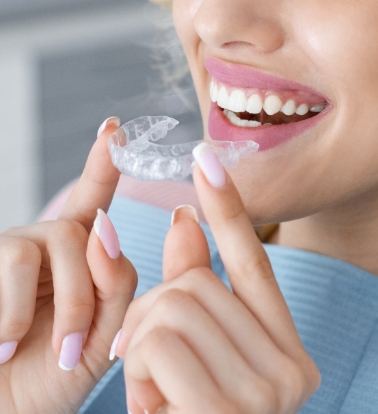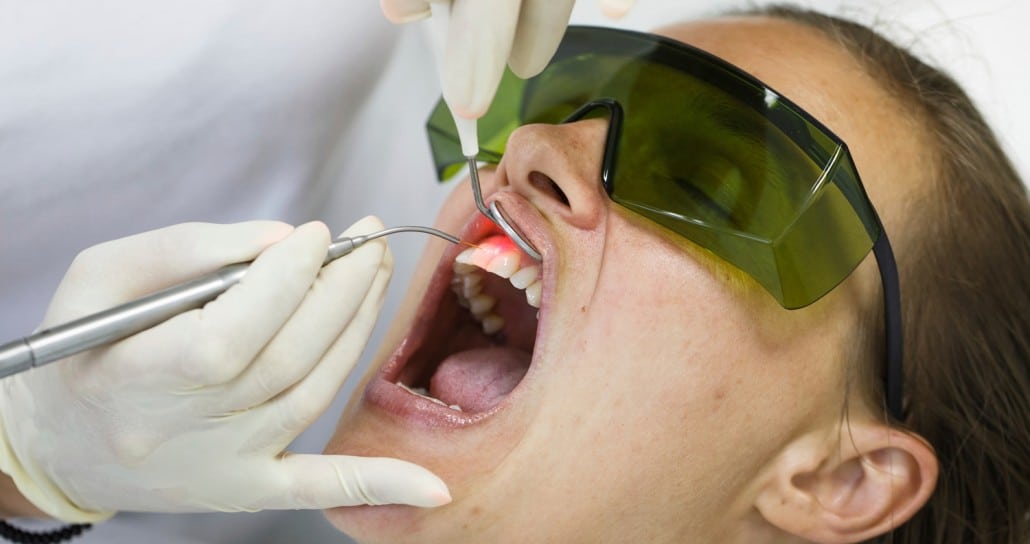
What is Laser Dentistry?
Laser dentistry is using light to aid in restoring and healing of dental problems. Lasers are known for quicker recovery and less discomfort than traditional methods. Our office utilizes a variety of lasers in our care from gum disease treatment, to addressing tongue or lip ties, fixing cavities, removing excess gum tissue, speed healing of canker sores, brighten teeth with whitening faster, reduce snoring etc.
The Benefits of Lasers
Lasers are one of the greatest technologies available to dentists today. Did you know that the heat and vibration of the dental drill are the primary causes of pain during its use? Because the dental lasers used on both hard and soft tissue (teeth and gums) through laser dentistry do not generate this heat or vibration, dental work can be performed with less postoperative pain, less need for anesthesia and fewer numb faces.
When cavities are cleaned using the laser, the unhealthy part of the tooth is removed using water and light energy. Many patients, especially children, find they can have their fillings done comfortably without being numb. This not only lessens anxiety for patients but makes their visit a much more pleasant one.
Who is a Candidate for Laser Dentistry?
Laser dentistry is appropriate for a variety of treatments and may be suitable for the vast majority of patients. The dentist performs a thorough examination of the teeth and gums when considering the merit of the dental laser in a given situation. While the laser can be advantageous for destroying the bacteria that cause dental infection, it may not be ideal for some patients with severe infection or existing tooth sensitivity.
Is Laser Dentistry Painful?
No. Lasers work by altering hard or soft tissue with light, not with vibration. The lack of vibration and precision of the thermal energy of a laser device expedite the treatment process and also eliminate most of the pain that is typically associated with dental treatments. A large majority of patients who undergo laser dentistry treatments do not need the local anesthetic that is normally used. However, if a patient is concerned about discomfort or feels any discomfort from the laser, the dentist can administer the injection of numbing medication that they normally would if using a dental drill.
Is Sedation or Anesthesia Used in Laser Dentistry?
The use of dental lasers significantly improves the patient experience in the treatment chair. That said, patients who are new to treatment with a dental laser may still feel a sense of fear and anxiety. In our patient-centered dental office, we offer NuCalm anti-anxiety as an elective service. This powerful system reduces anxiety naturally so patients can feel safe and more at ease during their laser procedure.
Is Preparation Involved With Laser Dentistry?
Laser dentistry can be performed in any dental treatment for which it is applicable. The technology is gentle and precise and does not require any special preparation on the part of the patient. If preferred or required, the dentist may begin treatment with an injection of numbing medication, just as they would before using a drill for a procedure like a filling or a root canal.
Laser Dentistry Treatment
Besides treatment of cavities, our dental lasers are especially helpful when removal of gum tissue and lip/tongue ties are involved. Before the use of laser dentistry, gum surgeries and lip/tongue tie surgeries/frenectomies used sharp blades or scalpels to remove tissue. This procedure was often painful, involved a lot of bleeding and had the potential for infection. Laser dentistry surgeries minimize bleeding, swelling and are considerably more comfortable. Patients often are even able to return to school/work the same day. Dr. Bethany Jensen can discuss in detail all the benefits as well as the procedures possible with laser dentistry.
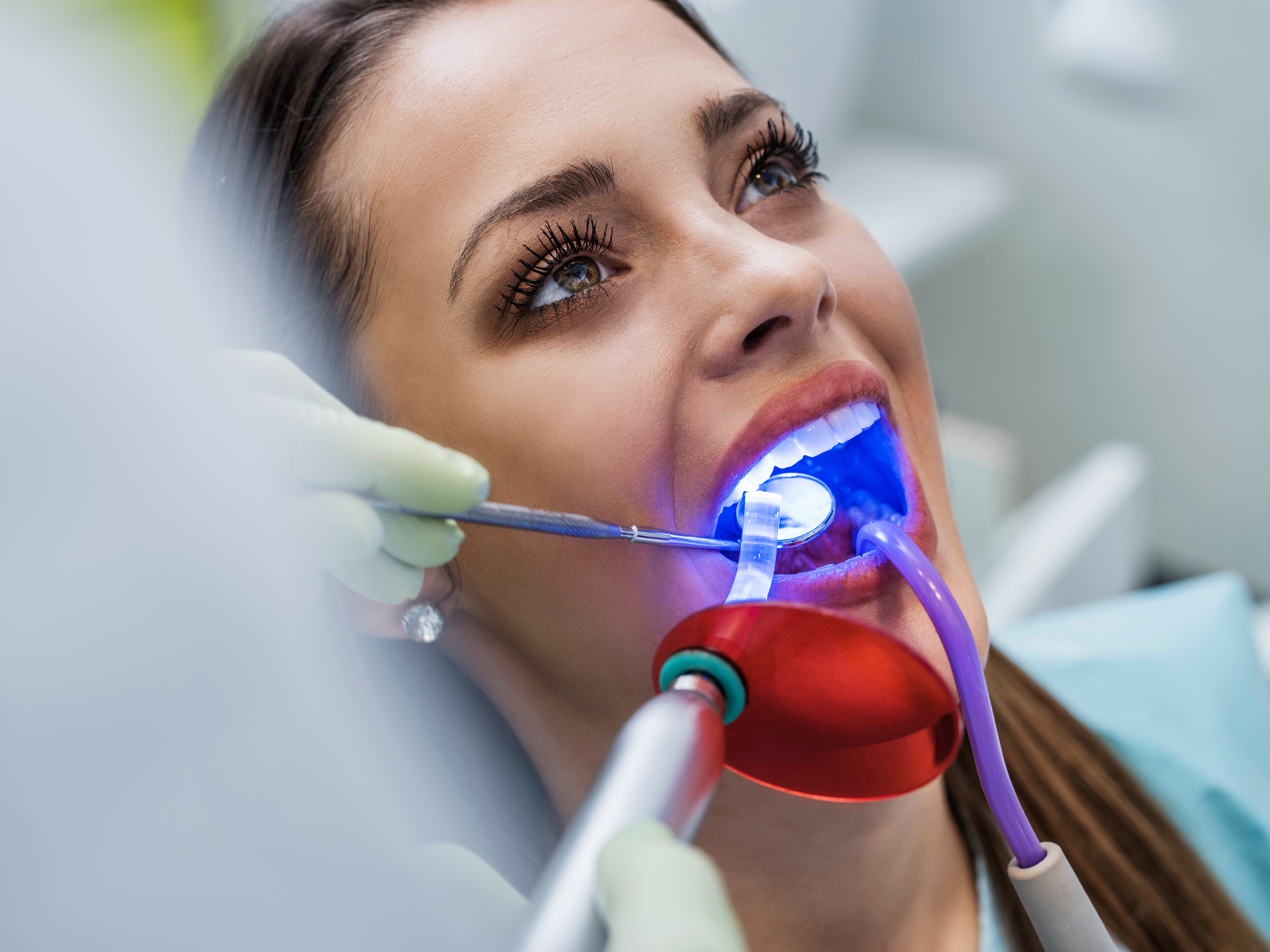
What Are the Most Common Laser Dentistry Procedures?
Lasers have become a cornerstone of the modern dental office. They are used for both hard and soft tissues, making them versatile and effective at treating a wide variety of conditions. Some of the primary ways in which laser technology is used in the dental office include:
- Cosmetic gum reshaping. Laser light quickly and gently "cuts" tissue, creating attractive, healthy gum contours.
- Gum disease treatment. Laser technology removes diseased gum tissue while also destroying the bacteria that have caused infection.
- Cavity treatment. By adjusting the laser to treat hard tissue, your dentist can destroy bacteria and, simultaneously, destroy cavity-causing bacteria before placing your filling.
- Teeth whitening. Laser teeth whitening works quickly and, with our laser, more effectively than traditional teeth whitening.
- Tissue removal. Historically, tissue removal has required the use of a scalpel. Today, lasers quickly and comfortably "cut" through soft tissue, making this ideal for frenectomy procedures and biopsies.
How Does Laser Gum Therapy Work?
Gum disease is a progressive infection that starts with mere inflammation. Your dentist or hygienist may use laser therapy as a conservative but effective treatment in lieu of traditional scaling and root planing. For more advanced cases of gum disease, in which the gums have pulled away from teeth, are swollen and infected, and bacteria have accumulated in pockets beneath the gum line, laser therapy may be used in conjunction with conventional treatments. In this case, the laser may be used at the beginning of the procedure as a method of gently removing diseased gum tissue. In this step, the laser may also remove the majority of plaque that's harboring bacteria. If needed, we'll use an additional tool to remove what's left. If you have tartar buildup, this may be removed with a special instrument or ultrasonic scaler. The laser may once again be used at the conclusion of the procedure to seal the site with a clot.
Can I Eat Normally After Getting Laser Gum Treatment?
You may need to alter your diet to some extent after getting laser gum treatment. Our goal is to allow time for your gums to heal properly and without irritation. To achieve this, your dentist may suggest a soft-food diet for about one week after your procedure. Soft foods like mashed potatoes, eggs, yogurt, soft-cooked vegetables, pasta, and soup provide sustenance without discomfort, provided you also avoid spicy foods. During this time, it is imperative that you avoid very hot foods, raw fruits and vegetables, crunchy or very chewy foods, gums, and meat that can get stuck between your teeth.
How Does Laser Teeth Whitening Work?
Laser teeth whitening is somewhat similar to traditional in-office whitening that activates the whitening agent with light. In this case, we activate the whitening agent with laser energy. The technique is generally the same. However, our use of the Er: YAG laser takes the process to a whole new level. Studies have shown that the Er: YAG laser wavelength fully permeates into the gel whitening agent, preventing the penetration of the tooth and pulp tissue. This can translate to faster, more dramatic results with less sensitivity and discomfort.
Patient Testimonial
"The hygienists and staff at Broadway Family Dentistry are amazing! They are so friendly and professional. Dr Jensen has been so helpful to me!! I have been a patient for quite a while and would recommend them to anyone."
Other Uses
Broadway Family Dentistry dentists not only can use the lasers for treatment of cavities and soft tissue surgery, our hygienists are also certified to use lasers. Our team of hygienists uses the light to reduce bacteria that causes areas of bleeding and infected gums. This is especially important for patients with gum disease as it can be used at every visit. These lasers can even be used to treat painful and irritating mouth sores (canker sore or cold sore). Patients report that the sores feel better immediately after its use.
What is Recovery Like?
Recovery from a laser dentistry procedure is dependent on the treatment you receive. For example, there is no significant recovery for laser cavity treatment. There may be little to no recovery for a standard laser treatment for mild to moderate gum disease. Patients who undergo laser dentistry for severe gum disease may be given specific aftercare instructions that outline when and how to brush or rinse the mouth, what to eat and what not to eat, and what they can expect as their gums heal. The dentist or staff can discuss what to expect before performing the treatment. We are also available after your laser dentistry procedure to answer questions that may arise.
What to Expect From Your Laser Dentistry Results
Patients who choose laser dentistry can enjoy a shorter, more comfortable recovery period from their treatment. Lasers are precise yet gentle. In addition to altering tissue as needed, such as preparing a tooth for a filling, the laser destroys bacteria that could pose a risk of post-treatment infection. The results of laser dentistry procedures are expected to be long-lasting.
Laser Dentistry Consultation in Minot, ND
The time and cost of laser dentistry procedures vary depending on what we are doing. We are happy to discuss this individual need with you at an appointment. Come and see the difference laser dentistry can do for you if you are from Minot, Williston, Garrison, New Town, Rugby, Bismark and Devils Lake, ND. Contact Broadway Family Dentistry at 701-839-1299 or fill out a Contact Form here to schedule an appointment or for any questions.


